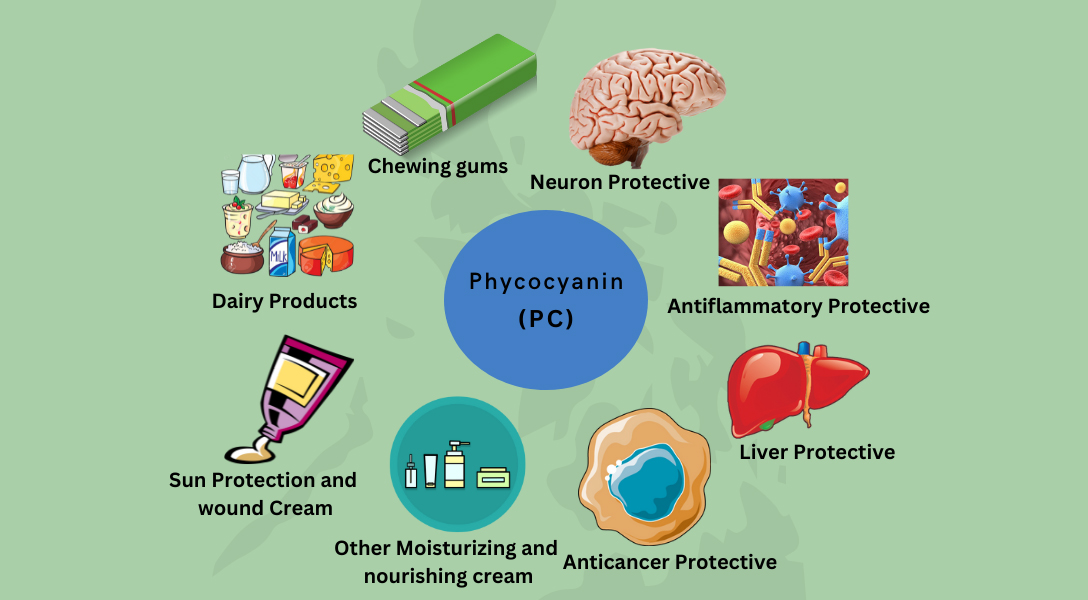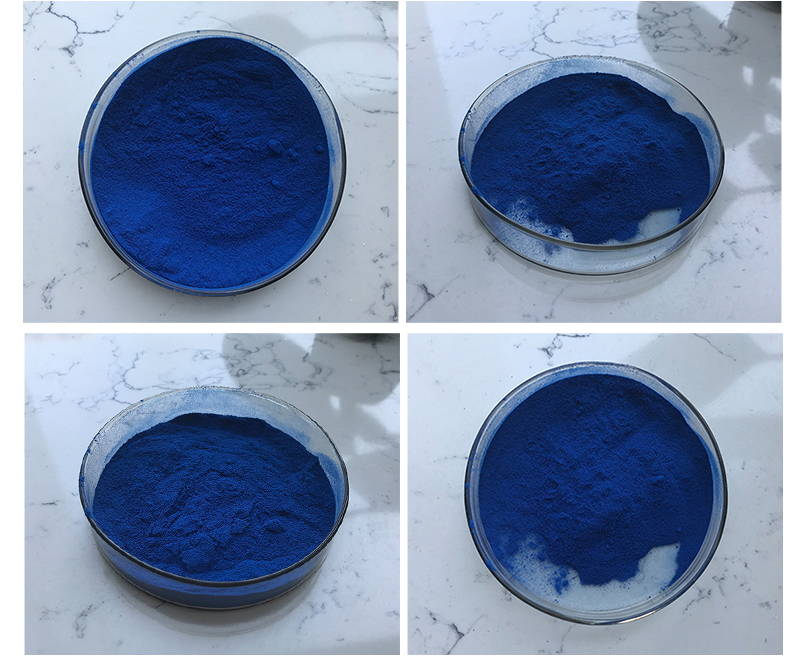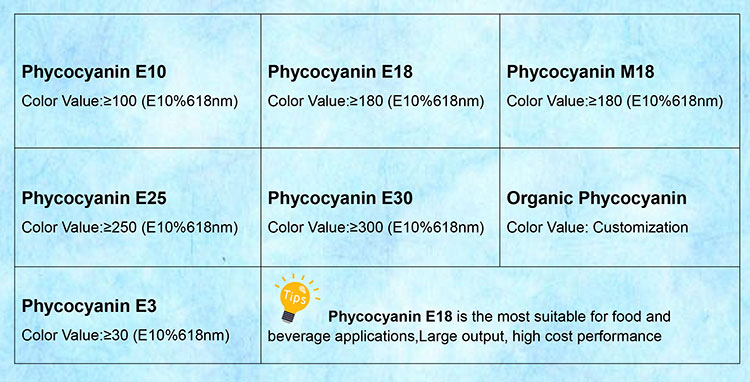Phycocyanin is a blue pigment-protein complex found in cyanobacteria, particularly in spirulina, a type of blue-green algae. It is known for its antioxidant and anti-inflammatory properties, as well as its potential health benefits.
Benefits of Phycocyanin
1. Powerful Antioxidant
Phycocyanin is rich in antioxidants, which help neutralize free radicals in the body. This can protect cells from oxidative stress and reduce the risk of chronic diseases such as heart disease, diabetes, and cancer.
2. Anti-inflammatory Effects
Phycocyanin has anti-inflammatory properties, which can help reduce inflammation in the body. Chronic inflammation is linked to many health conditions, including arthritis, cardiovascular disease, and neurodegenerative disorders.
3. Supports Immune Health
The antioxidant and anti-inflammatory properties of phycocyanin can help support the immune system. It has been shown to increase the production of white blood cells and improve the body’s defense mechanisms against infections.

4. Liver Health
Phycocyanin has hepatoprotective effects, which means it can help protect the liver from damage caused by toxins and oxidative stress. It may support detoxification and improve liver function.
5. Neuroprotective Effects
Some studies suggest that phycocyanin may have neuroprotective properties, which could help protect the brain from damage and reduce the risk of neurodegenerative diseases such as Alzheimer’s and Parkinson’s.
6. Enhances Energy Levels
Phycocyanin can help boost energy levels due to its ability to improve the efficiency of cellular respiration and reduce fatigue. It is often included in supplements marketed for increased energy and vitality.
7. Supports Healthy Blood Sugar Levels
Some research indicates that phycocyanin may help regulate blood sugar levels by enhancing insulin sensitivity, making it beneficial for individuals with type 2 diabetes or those at risk of developing it.
8. Improves Skin Health
Due to its anti-inflammatory and antioxidant properties, phycocyanin may also benefit skin health. It can help reduce skin inflammation, acne, and signs of aging, such as wrinkles and fine lines.

9. Enhances Detoxification
Phycocyanin may support the body’s detoxification processes by promoting the elimination of toxins and heavy metals. It has been shown to have chelation properties, which can help remove harmful substances from the body.
10. Improves Cardiovascular Health
Some studies suggest that phycocyanin may help lower cholesterol levels and reduce blood pressure, contributing to better overall cardiovascular health and a reduced risk of heart disease.
11. May Help with Weight Management
Phycocyanin is sometimes included in weight management supplements due to its potential to improve fat metabolism and reduce fat accumulation, though more research is needed in this area.
12. Anticancer Potential
Preliminary studies suggest that phycocyanin may have anticancer properties, as it has been shown to inhibit the growth of cancer cells in some laboratory experiments. However, more clinical studies are needed to confirm this effect in humans.
13. Antibacterial and Antiviral Effects
Phycocyanin has demonstrated antibacterial and antiviral properties in certain studies, suggesting it may help fight infections and boost the body’s overall resistance to pathogens.

Conclusion
While research into phycocyanin is still ongoing, its diverse range of benefits—particularly its antioxidant, anti-inflammatory, and immune-boosting properties—makes it a promising supplement for supporting overall health. As with any supplement, it is important to consult with a healthcare professional before adding phycocyanin to your routine, especially if you have any pre-existing health conditions or are on medication.
Would you like more information on where to find phycocyanin-rich products or how to incorporate it into your diet?
